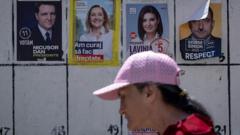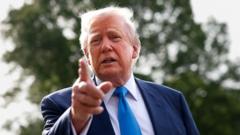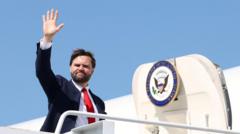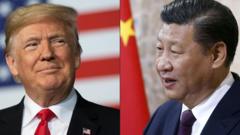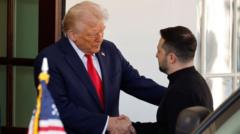Ukrainian President Volodymyr Zelensky has rejected a Russian offer for a three-day cease-fire, branding it a mere distraction from peace negotiations, while reiterating Ukraine's commitment to a more extended 30-day cease-fire proposal.
**Ukraine Dismisses Russian Cease-Fire Proposal as Insufficient**

**Ukraine Dismisses Russian Cease-Fire Proposal as Insufficient**
President Zelensky critiques Russia's three-day truce, emphasizing the need for a longer agreement.
In a recent statement, President Volodymyr Zelensky of Ukraine announced on Saturday that the nation would not accept a proposed three-day cease-fire by Russia. Zelensky characterized the short truce as inadequate for fostering genuine negotiations towards lasting peace, referring to it as a “theatrical show.”
The background to this rejection comes from an earlier proposal accepted by Ukraine in March, which involved a 30-day cease-fire orchestrated by the Trump administration. This longer halt in hostilities was intended to pave the way for discussions on critical issues such as establishing an armistice line, ensuring security at a nuclear power plant currently held by Russian forces, and the potential deployment of a European peacekeeping contingent.
During a press conference in Kyiv, Zelensky emphasized that Russia’s offer of a brief cease-fire, coinciding with the anniversary of World War II’s conclusion—a significant date in Russian political culture—served primarily as a tactic to soften international perceptions of President Vladimir Putin. Zelensky asserted that the proposal was aimed at alleviating security concerns among world leaders, including China's President Xi Jinping, who is set to attend the upcoming Victory Day parade in Moscow on May 9.
"We are simply either at war, or Putin shows he is ready to stop shooting as a first step to ending the war," stated Zelensky. He reiterated Ukraine's willingness to initiate their 30-day cease-fire proposal prior to the May 9 celebration, should Russia agree to terms that would lead to a more substantial peace process.
The background to this rejection comes from an earlier proposal accepted by Ukraine in March, which involved a 30-day cease-fire orchestrated by the Trump administration. This longer halt in hostilities was intended to pave the way for discussions on critical issues such as establishing an armistice line, ensuring security at a nuclear power plant currently held by Russian forces, and the potential deployment of a European peacekeeping contingent.
During a press conference in Kyiv, Zelensky emphasized that Russia’s offer of a brief cease-fire, coinciding with the anniversary of World War II’s conclusion—a significant date in Russian political culture—served primarily as a tactic to soften international perceptions of President Vladimir Putin. Zelensky asserted that the proposal was aimed at alleviating security concerns among world leaders, including China's President Xi Jinping, who is set to attend the upcoming Victory Day parade in Moscow on May 9.
"We are simply either at war, or Putin shows he is ready to stop shooting as a first step to ending the war," stated Zelensky. He reiterated Ukraine's willingness to initiate their 30-day cease-fire proposal prior to the May 9 celebration, should Russia agree to terms that would lead to a more substantial peace process.

